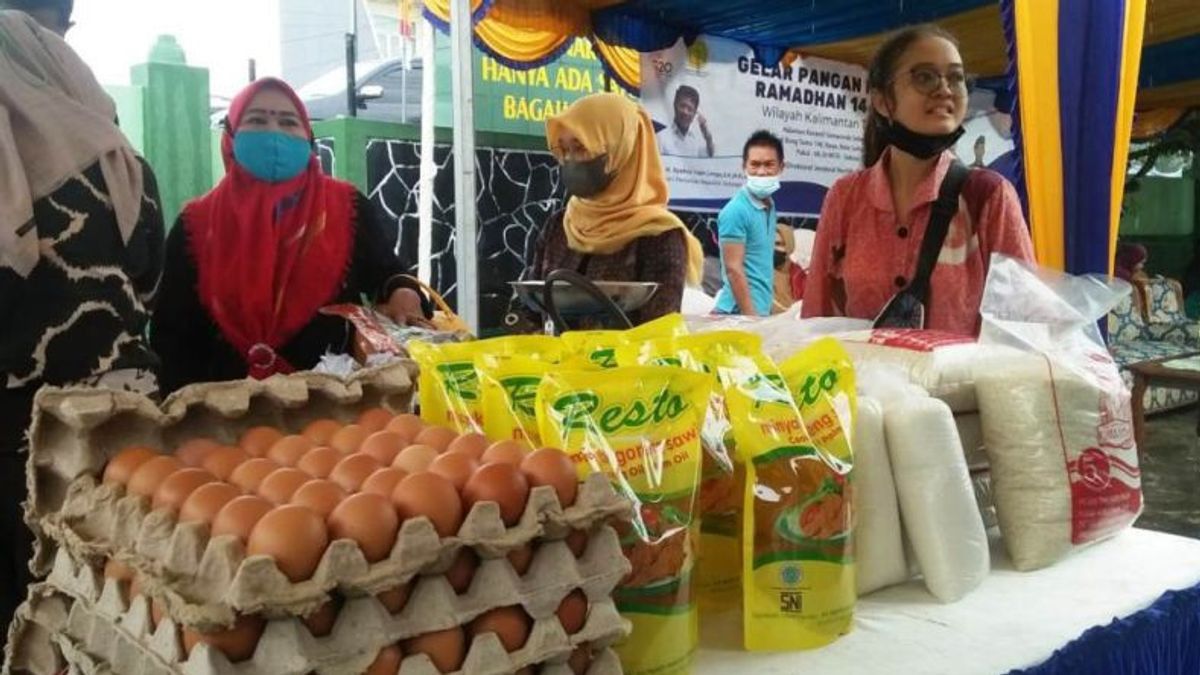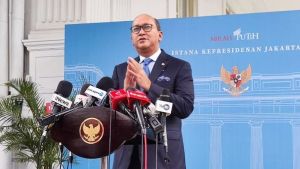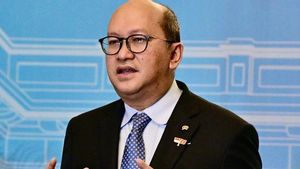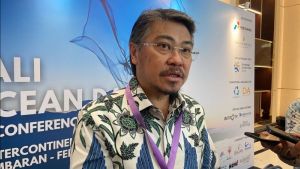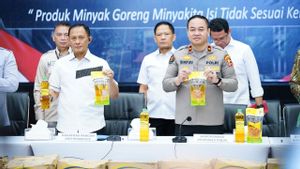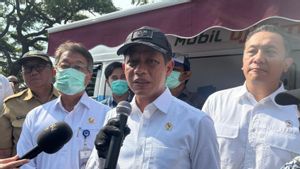JAKARTA - Member of Commission VII DPR RI Rofik Hananto regretted the government's inconsistency in setting policies related to efforts to ensure the availability of cooking oil and stabilize the price of bulk cooking oil at Rp. 14,000 per liter.
"The first is in terms of content, namely various errors regarding the contents of the policy, especially what is prohibited from exporting. At first CPO (crude palm oil) was prohibited from exporting, it turns out that only raw material for cooking oil (RBD Palm Olein) was prohibited. Then there was an error Next, it is CPO that is prohibited from exporting," said Rofik in a written statement, Tuesday, May 3.
With this, he added, it resulted in stakeholders in the cooking oil industry failing to understand the government's wishes. One of those affected was reports of palm oil mills (PKS) starting to reject farmers' palm fruit.
Meanwhile, Rofik continued, the attitude between President Jokowi and Coordinating Minister for the Economy Airlangga Hartanto showed a different message. It can be seen that there is no complete cooperation and communication between state administrators.
"It is better when the President and relevant ministers such as the Coordinating Minister for the Economy, the Minister of Industry, and the Minister of Trade are in the same forum when conveying their policies, so that the details of the implementation of their policies can be directly communicated," he continued.
He emphasized that this export ban in any form is contrary to the current globalized economic policies in the world. There is not a single country, he stressed, that does not need other countries to fulfill their needs. Moreover, this CPO product is a commodity that has been traded internationally so far. Therefore, Rofik views this policy as not a solution.
"What will the world say that CPO is prohibited from being exported. Therefore, this export ban can be seen as just a gimmick to gain public sympathy and an effort to cover the government's shortcomings in its ability to execute policies. Therefore, stop playing with the people and start making realistic and solution policies," he explained. Rofik.
According to Rofik, the DMO policy for CPO is appropriate because domestic demand for cooking oil is sufficient to meet only 20 percent of the total CPO production. It remains only to adjust the price policy to reduce export leakage, namely the government buys it at a good price so that entrepreneurs and farmers can enjoy the rising prices of their commodities in the international market.
"Where's the money coming from? It could be from the Palm Oil Plantation Fund Management Agency (BPDPKS) whose amount of funds increases in line with the price of CPO commodities. What's wrong with some of the funds being enjoyed by the people in the form of cooking oil at an affordable price," concluded Rofik.
The English, Chinese, Japanese, Arabic, and French versions are automatically generated by the AI. So there may still be inaccuracies in translating, please always see Indonesian as our main language. (system supported by DigitalSiber.id)
